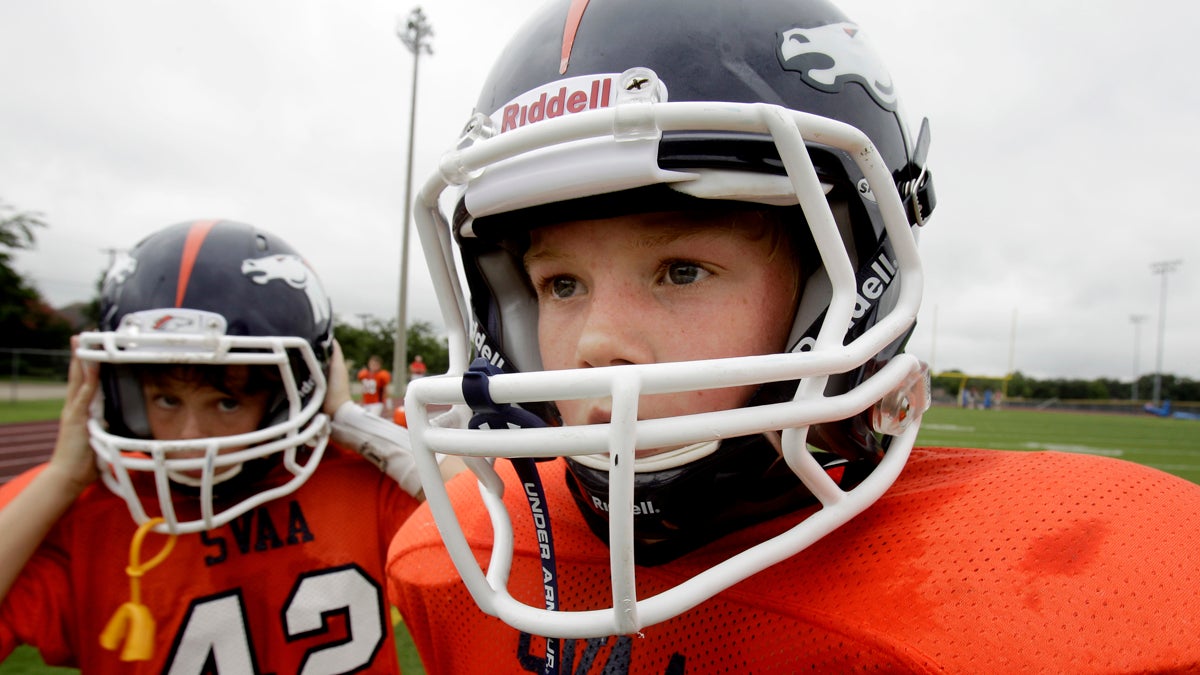‘Friday Night Tykes’ shows where American football culture goes wrong

(AP Photo/LM Otero)
At what point did American youth sports become a punishing, mentally abusive and brutal extracurricular activity? The new docu-series “Friday Night Tykes,” on the Esquire Network (catch the first episode here), follows five rookie teams in the Texas Youth Football Association. It’s a chilling look at the current state and future of youth sports.
In the first and second episodes alone, we watch these young football players as they are pushed beyond their physical means, pressured into being violent athletes, and told by coaches, “Y’all can hit everybody right here. They’re going to lose players one at a time.” Some young athletes are even driven to the point of injury and vomiting.
What is wrong with these coaches? When did they lose sight of the true meaning of competition and teamwork, and exactly when did they begin to believe they were coaching miniature NFL players?
These players are truly tiny at 8 and 9 years old, yet they are being encouraged to make their opponents bleed. Further shocking moments on the show include obsessive parents who are filmed screaming at their children, and a coach who tells his players, “F*** The Rockets,” before playing a rival team. “We’re gonna beat the s**t out of you.”
Perhaps due to concerns raised by NFL and youth leagues about head injury in youth athletes, there has been a dramatic decline in the participation in Pop Warner, the nation’s largest youth football program. Four states, including Georgia, Oregon, Tennessee and Wisconsin, have already enacted new concussion laws this year. And everyone from the NFL to Snoop Dogg has spoken out about protecting our young athletes. The NFL even created the Heads Up Football Program in order to help raise awareness about head injury in youth athletics and help teach a safer way to tackle.
With all the hype of last weekend’s Super Bowl, it’s interesting to debate what the effects of a crackdown on youth football means for the future of the NFL. While it is excellent that these new regulations are going to help protect young athletes, are growing concerns and the media attention toward players such as Dwight Harrison, who now suffers from dementia, going to scare kids, and more importantly their parents, from competing until they feel safer?
Concussions are a serious concern in youth athletics, and highlighting the particular teams who disregard the safety of children is an important reminder that, as adults, we are responsible for protecting young players. It is our responsibility to make sure these laws that are being passed are taken seriously and we instill only a positive sense of competition in young athletes.
According to a shocking study by the National Academy of Sciences, more than 250,000 youth athletes suffered concussions in 2009. Since young players are more prone to head injury that result in long-term effects, due to their underdeveloped brains, 250,000 is a very scary number. And the helmets, designed to protect football players, have been the criticized as inadequate for many years. Young athletes need education on how to better protect their bodies and how to safely tackle their opponents while remaining physically aware.
To the relief of many viewers, “Friday Night Tykes” coaches Charles Chavarria and Marecus Goodloe were both recently suspended for their profane and violent actions on the show. The backlash from a wide range of communities is more than justified. Hopefully the show’s shock factor will be used as a push to continue the efforts to create a safer environment for our nation’s youth athletes.
WHYY is your source for fact-based, in-depth journalism and information. As a nonprofit organization, we rely on financial support from readers like you. Please give today.

